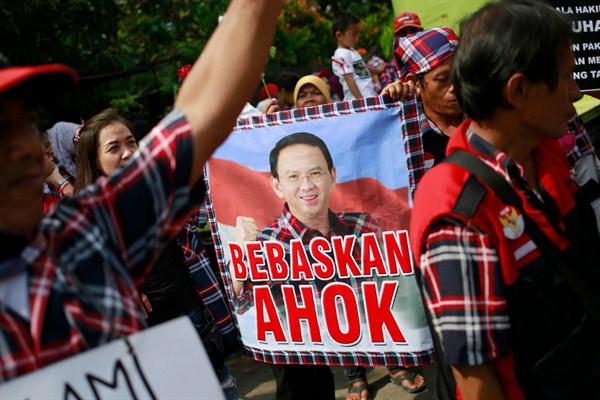Last month in Indonesia, the world’s largest Muslim-majority nation, Basuki Tjahaja Purnama—the Christian and ethnically Chinese governor of Jakarta popularly known as Ahok—lost his re-election bid. The election was ugly, as Ahok was simultaneously on trial for blasphemy and the target of a perceived smear campaign by hard-line Islamists. Ahok’s defeat in the runoff by Anies Baswedan, a former education minister, was followed last week by the court handing him a two-year jail sentence, which has sparked fears about the growth of religious radicalism in Indonesia.
But the blasphemy conviction has also prompted questions about the re-election prospects of Indonesian President Joko Widodo, or Jokowi, as Indonesia moves closer to national and legislative polls in 2019.
The temptation to connect Ahok’s recent loss with Jokowi’s own future prospects is not surprising. After all, the Jakarta election was essentially a proxy fight for the 2019 vote: Jokowi and his Indonesian Democratic Party of Struggle supported Ahok, who was Jokowi’s former running mate when he ran for governor back in 2012, while Prabowo Subianto, Jokowi’s chief rival in the 2014 presidential election and now the chairman of the Great Indonesia Movement Party, or Gerindra, backed Baswedan. Ahok’s loss to Baswedan was naturally viewed as a blow to the Jokowi camp and a boon for Prabowo, who is likely to challenge Jokowi again in 2019.

